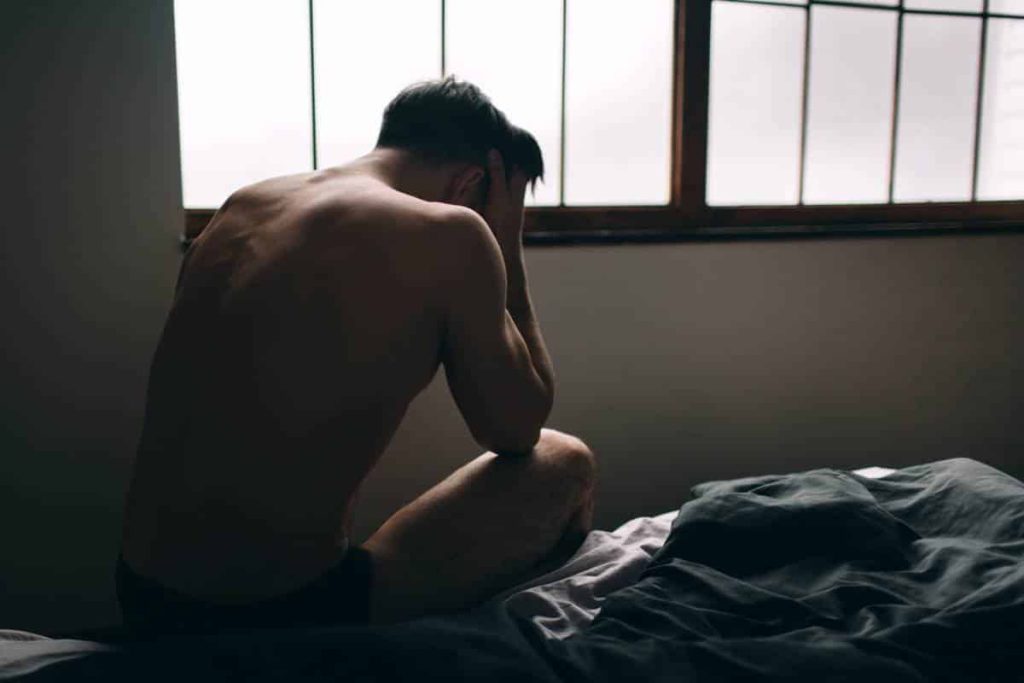Mental health awareness has come a long way in the past few years. Yet, while anxiety, depression, and the like are discussed far more than ever before, most conversations on the topic seem to encompass all mental health issues. The truth is that despite the tone adopted by a number of articles on the subject, anxiety and depression are not two interchangeable words to describe the same thing.
It is possible to suffer from anxiety and depression at the same time. It is even possible that one leads to the other. However, this is not always the case. It’s increasingly frustrating for those trying to get to the heart of their problems and get them under control.
Summary
Depression : symptoms
Contrary to what some may believe or have told you, depression is a prolonged and mostly persistent feeling of being severely unwell, often to the point that those going through a bout of depression will lose all sense of enjoyment of things they once enjoyed. .
While the world can feel very intense and relentless for someone dealing with anxiety, depression often makes the world slow, gray and miserable.
Depression affects people to such an extent that it would take (in fact, took) entire books to adequately describe all the ways it can manifest in someone.
You may suffer from a loss of motivation and a general feeling of lethargy, while in more advanced cases of depression you may experience severe symptoms such as a complete lack of hope and even suicidal thoughts.
That said, there are common symptoms that may be familiar to many people with depression. These include:
- Little or no enthusiasm for doing the things you used to enjoy.
- Feeling tired and lazy all the time.
- Sleeping troubles.
- Loss of appetite or overeating.
- Difficulty concentrating or making decisions.
- Feeling of despair.
- A dark, pessimistic perspective and the impossibility of seeing an « exit ».
Anxiety : symptoms
Believe it or not, some level of anxiety is actually helpful.
Anxiety can be helpful in keeping us alert and focused, and in triggering a fight-flight response when faced with real danger.
Healthy anxiety can be the body’s way of telling us to run out of a burning building or, for a less extreme example, to go to the library and study hard if we have a big exam to come.
However, when anxiety becomes a problem is when this fight-flight response is triggered when there is no real danger, or when that danger is not as severe as the level of anxiety. seems to suggest so.
That certainly doesn’t mean that those who suffer from anxiety are overreacting or that there isn’t a real problem. Rather, the situation triggers the anxiety to such a level of intensity that, instead of being helpful, it becomes crippling.
Let’s take our previous example of an important upcoming exam. Again, a healthy level of anxiety might remind us that this is important and that we better study. However, our anxiety levels were too high, which could be so debilitating that not only does it prevent us from studying effectively (which increases the likelihood that we will fail the test, which, in turn, increases the likelihood that us to be even more anxious about future tests), but creates all kinds of symptoms that prevent us from functioning normally.
This is when we end up with an anxiety disorder, a serious, albeit treatable, condition that can cause a number of symptoms, including:
- Shortness of breath.
- Hyperventilation.
- Panic fear.
- Muscle tension.
- Rapid, strong or irregular pulse.
- Dizziness.
- Sickness.
- Nausea.
- A feeling of apprehension.
- Restlessness and irritability.
- Sleeping troubles.
Also read: How do you know if you are suicidal?
The links between depression and anxiety
Although it is important to remember that theanxiety and depression are not the same thingthat’s not to say the two don’t cross paths sometimes.
It is not uncommon for anxiety to eventually cause depression.
All that tension, panic, and being constantly on edge can be very exhausting, leaving a person feeling lethargic and hopeless. It is not uncommon for a crisis of depression follows a period of anxiety.
Even more common is to see anxiety and depression co-evolving, a double whammy that can be crippling for those who suffer from it.
Although even the best medical experts have not been able to concretely explain why, it is often observed that not only do depression and anxiety disorders frequently occur together, but when they do occur their symptoms are often more extreme than in people who only suffer from one or the other.
The differences between depression and anxiety
Despite an overlap in symptoms of the two conditions, especially when they occur at the same time, there are some notable differences between anxiety and depression:
- Anxiety often produces excess energy (sweating, shaking, feeling restless).
- Depression usually results in loss of energy (feeling exhausted, lethargy, usually lacks drive or motivation).
- Anxiety often creates worry that bad things are going to happen. Those with anxiety disorders usually don’t want the bad thing to happen, but are too worried about it happening.
- Depression can create feelings of hopelessness about the future. People who suffer from depression often don’t worry as much because they think they « know » bad things are inevitable and stop worrying about the future because it seems dark, hopeless, and inevitable.
- Anxiety can produce an effect of overactivity of the brain: constantly thinking, projecting into the future, imagining scenarios. The mind can feel cluttered and busy.
- Depression can slow thinking. Rather than an overly busy mind, the opposite happens, the noise and clutter of anxiety is replaced by a general feeling of dread and hopelessness about the future.
- Anxiety can produce a whole wealth of emotions: worry, anger, concern, nervousness, irritability, irritability.
- Depression often produces a lack of emotions other than a general and deep feeling of sadness and worthlessness.
What to do if you suffer from anxiety or depression?
The good news is that whether it’s depression, an anxiety disorder, or a combination of the two, both conditions can be treatedso you don’t have to suffer much longer.
A doctor may be able to prescribe antidepressants, medications that address the chemical imbalance in the brain that is often linked to conditions such as anxiety and depression.
They can also refer you to support services, such as cognitive behavioral therapy, which can provide you with powerful and effective techniques to manage and combat both of these conditions.
While you’re waiting for an appointment (or just don’t want to take medication), there are a number of things you can do right now to help ease your symptoms.
Be active
Did you know that exercise can be one of your powerful defenses against depression and anxiety disorders?
Not only does exercise release dopamine which induces feelings of happiness and pleasure, but it can also leave you feeling calm and relaxed afterwards. A good, long workout can also make you tired, which makes it a little easier to sleep.
Get support
Always remember that you are not alone. There are still countless support groups and hotline numbers you can turn to.
If your feelings of depression are so bad that you think you might hurt yourself, don’t suffer alone. Help is available wherever you are in the world.
Breathe deeply
Talking about breathing techniques, practicing certain breathing exercises, or even spending a few minutes in meditation can be very effective in combating anxiety, depression, and other mental health issues.
The good thing is that you don’t even have to go to a class to learn a particular technique or meditation. Websites like Youtube are full of great guided meditations and breathing exercises you can do anywhere.
Try yoga or Tai Chi
Prefer something a little less strenuous than a high-intensity workout? Do some research on local yoga or tai chi classes and go for it.
Most classes are extremely beginner-friendly, and the gentle movements and breathing techniques can prove just as beneficial as more intense exercises when it comes to improving our mood and relaxing us.
Eat healthy
In 2017, researchers found a strong link between excessive sugar consumption and depression in men. Although the same link has not been found in women, reducing sugar intake and eating more fresh fruits and vegetables can have huge health benefits for both genders. Reducing sugars gives you more energy, which can be very helpful in combating the feelings of lethargy and lethargy that often accompany depression.
Sugar and caffeine are also known to increase feelings of tension and anxiety, so consider switching to water or decaffeinated tea to help you feel more relaxed.
To conclude
Anxiety and depression are different despite the similarities they share and the fact that severe anxiety can lead to depression.
The relationship between anxiety and depression can be complicated. But getting to know the differences and similarities between the two is a big step towards getting the help and support you need.
Read also: Having a pet: the daily health benefit




